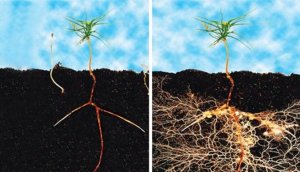Andy Morgan går gjennom den dårlige vitenskapen i Game Changers.
Calling out the bad science in The Game Changers
Straight talk, I have not watched it and refuse to pollute my head with it. (The same goes for other Netflix nutrition documentaries.)
This may seem arrogant, but I don't feel the need. I get my information directly from research and research reviews, which I've been reading every month, for years. A documentary is unlikely to be able to tell me anything new about the state of the science because a documentary has no more access to science than I do. (Unless I missed something.) But this is not the case.
Helpfully, just as I was writing this email this morning, my two super-smart friends Greg Nuckols and Eric Trexler decided to cover it on the Stronger by Science podcast. (Listen here, skip to the 27-minute mark.)
This is my less-nuanced, more biting take, covering what they said.
The documentary treats diet choices as a false dichotomy between a vegan diet and the worst interpretation of a western diet (super-high fat, lots of processed meat, with a ton of sugars and starches. Nobody reading this is likely to eat like that and nobody is questioning that the former will be healthier than the latter, for most people.
They treat animal products as a categorical variable with no room for nuance. They suggested that the addition of any animal protein addition to a meal ruined that meal from a nutrition perspective and became a harmful, unhealthy meal. (This is far from unique to this documentary.)
Debunking some claims:
Claim: Gladiators had a high bone density and only ate plants.
Sure! Most retired American footballers have high bone mineral density. But they are large athletic people, who had been loading the hell out of their skeleton for decades and ate enough. This is not down to their individual diets.
Claim: Nate Diaz beat Connor McGregor in a fight because eating meat products makes you worse at fighting.
This is just shitty logic, not backed up by anything in the documentary, though they tried.
Claim: Cows have more muscle than a human, but cows don't eat meat. How do you explain that one?
Their digestive systems are different. They have four stomachs (kinda), which allow them to derive a lot more protein from the plants they consume.
By this logic, you could say that circadian rhythms are not important because raccoons are awake all night.
Claim: Humans are not carnivores. (A jawbone is shown.)
Agreed. We're omnivores. Again, this is here to set up a false dichotomy with a meat-only diet.
Claim: Protein is not a key energy substrate for high-energy exercise.
Correct. But nobody in the contemporary sports world believes this. It was there to set up another ridiculous dichotomy — you're going to have a high carb diet, or you're going to have a diet that includes some amount of animal protein.
Other criticisms:
1) They disregard the importance of protein quality. Sure, if you have a diverse diet from several different protein sources and are eating enough, you're unlikely to be clinically deficient in any particular amino acid. But they threw out the concept of protein quality, which goes against the weight of the sports nutrition evidence on the performance and recovery benefits.
Perhaps this wasn't a claim based at athletes, and sure, if you're a non-athlete, then you're unlikely to die of a horrible deficiency. But if you're presenting a documentary with multiple athletes, you have to be able to apply these claims to sport.
2) A horrendously performed leg press. A head touched two knees.
3) A smattering of weird demonstrations presented as if they were rigorous scientific experiments. (No, there's a whole field dedicated to that.)






